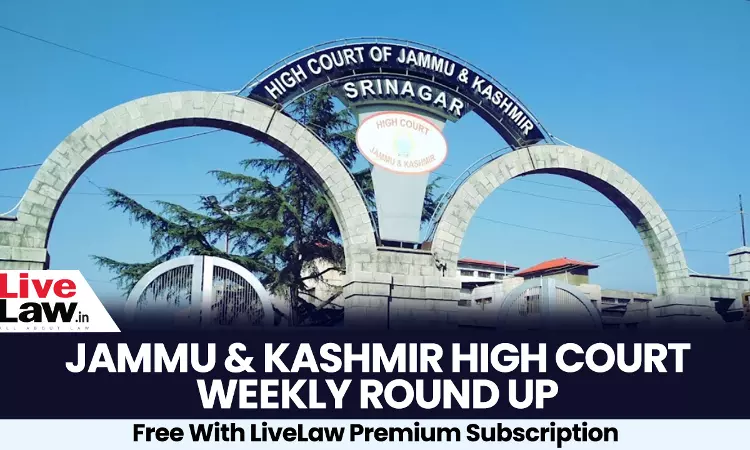Jammu & Kashmir And Ladakh High Court Weekly Roundup: December 8 - December 14, 2024
Basit Amin Makhdoomi
15 Jan 2024 1:35 PM IST

Next Story
15 Jan 2024 1:35 PM IST
Nominal Index:Sahil Gupta Vs UT of J&K 2024 LiveLaw (JKL) 1Abdul Rahim Ganai V/s State of JK and others (SRTC) 2024 LiveLaw (JKL) 2Waqas Riyaz Khan Vs UT of J&K 2024 LiveLaw (JKL) 3MOHAMMAD BIN SHORA Vs. UNION OF INDIA AND ANOTHER 2024 LiveLaw (JK) 4Pritam Chand alias Pritam Singh Vs Dr. Kamal Saini 2024 LiveLaw (JKL) 5Haja @ Hajira Bano Vs Gh. Mohammad Ahangar 2024 LiveLaw (JKL)...
